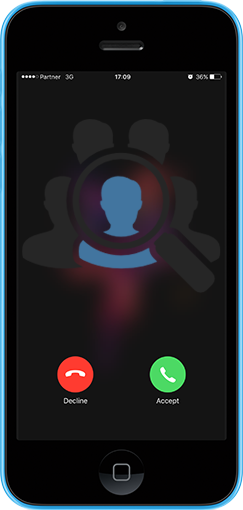Reverse Phone Lookup
Enter a 10-digit phone number
A Reverse Phone Number Lookup Can Provide
- Owner's Details; Full Name, Age and Gender
- Contact Info; Phone Numbers, Email Addresses and Social Profiles
- Social Media; Social Accounts, Dating Profiles and Photos
- Location; Current Address, Past Addresses and Co-Residents
- Family Members; Relatives' Names, Contact Info and location
- Personal Details; Estimated Income, Property Ownership and Interests
